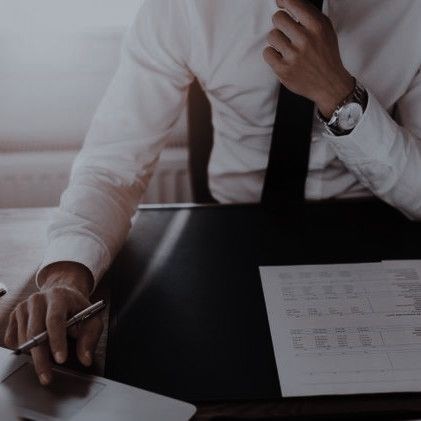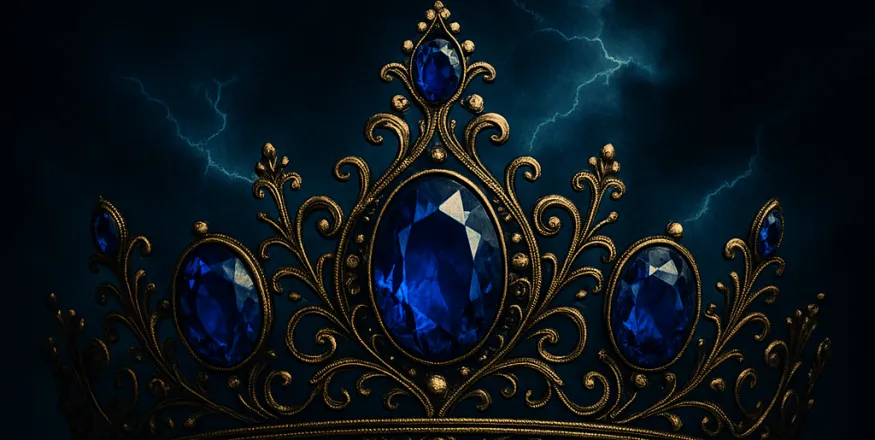
The family office smelled like exhaustion and espresso.
It was supposed to be a polished workspace—elegant, commanding, with floor-to-ceiling windows over the garden and twin mahogany desks that framed the room like thrones.
Between us sat a round table, now buried in stress: blueprints, reports, two empty coffee carafes, and one broken pen that had bled ink like a crime scene.
We'd been here since Saturday. It was Sunday midday, and the Serkan pitch still looked like a eulogy for innovation. I had rewritten everything. It wasn't enough.
No matter how many times I restructured the proposal, it still read like a funeral speech for innovation. I'd rewritten the procurement timeline twice, cross-checked shipment data, and threatened the margins into compliance—and we were still going to miss the deadline.
Across from me, Imran groaned like a dying animal. He was slouched in his chair like the weight of the entire regional economy rested on his spine, one hand gripping his mouse, the other dragging down his face like it owed him something.
"I swear this deck is cursed."
"You're cursed," I muttered, massaging my temples. "I told you not to greenlight two strategy shifts in one fiscal quarter."
"You told me a lot. I stopped listening somewhere around espresso number two and verbal assault."
"That's on you."
He leaned back and cracked his neck, the sound sharp in the quiet.
"You want coffee?"
"If you're offering."
"Do I have a choice?"
"Not if you want to live."
He stood with a dramatic sigh and grabbed both carafes off the table.
"Make enough to wake the dead."
Imran rolled his eyes and left for the kitchen.
I sat back, spine straight, and exhaled through my nose. My eyes flicked over the latest revisions for the Sarkan build timeline, scanning for leverage points I hadn't already chewed through. I'd known this project would bleed us, but I hadn't expected it to feel like actual trench warfare.The doorbell rang.
Imran's voice floated in from the kitchen. "Can you get that?"
I didn't look up. "Who is it?"
"Reinforcements." That made me pause.
Reinforcements?
I padded down the hall, barefoot and annoyed. Probably one of the interns dropping off a file he forgot to scan.
I opened the door—and immediately regretted it.
Ayub.
He looked like he'd walked straight off a runway and directly into my migraine—black jeans, a fitted sweater, and that stupid, unfair face.
"Selam," he said, quiet and calm. I swallowed whatever sound tried to claw its way up my throat. "You're the reinforcements?"
He gave me a half-smile that didn't reach his eyes. "Apparently."
And then he just walked in. Like this was his house. Like we hadn't been carefully not speaking since Friday
In the dining room, chaos reigned.
The triplets had taken over the entire table with their advanced chemistry project—reaction pathway diagrams, molecular models, pipettes that probably weren’t school-issued, and one glass beaker that still had steam coming off it.
Amina had staked out the center with her markers and sketchpad, turning complex reaction steps into something halfway between a molecular schematic and comic book art. She’d drawn out the energy profile of a reaction like it was a battlefield. Adem typed at his laptop with one earbud in, reviewing sources with the fake calm of someone who was about to snap. And Tarik… Tarik looked like he’d lost a fight with a hot glue gun. Benzene rings stuck to his shirt. There was glitter in his hair.
Ayub paused at the doorway, then stepped in like he’d done it a hundred times before.
“Yo, selam,” Adem said, tugging out one earbud to fist bump him.
Tarik looked up from the disaster in his hands. “You don’t want to touch me, bro. I’m basically adhesive.”
Ayub grinned. “Good to know.”
Then he leaned in a little, glancing over their work. “What’s the project?”
Amina didn’t miss a beat. “Thermodynamics of endothermic and exothermic reactions. Visual breakdown, comparative model, and artistic integration—because we don’t do boring.”
“She’s doing the artistic integration,” Adem clarified. “We’re just trying not to set the house on fire.”
Tarik held up a crooked molecular structure like it was proof of war crimes. “This was supposed to be stable.”
“It was stable until you tried to microwave it,” Amina snapped.
“It needed heat!”
“Not all heat comes from microwaves, caveman.”
Ayub’s mouth twitched. He nodded at Amina’s poster. “That’s Le Chatelier’s Principle?”
“Loosely,” she said. “But mine has fire and swords.”
Adem sighed. “Because of course it does.”
Ayub tilted his head. “Honestly? I’d have learned it faster if mine had looked like that.”
Amina looked mildly stunned for a beat. “You’re not just saying that?”
“No,” he said. “It’s smart. You made something hard memorable.”
She blinked once. Then recovered instantly. “You’re welcome for the free education.”
Ayub just smiled—small, genuine—and stepped back, giving Tarik a wide berth as glue dripped from something that definitely wasn’t supposed to be dripping.
I watched him for half a second longer than I meant to.
Then turned and headed back toward the office.
He followed a few moments later, quieter now, something softer lingering between us.
When we stepped into the room, he dropped his bag and logged into the third monitor like he belonged there.
No questions. No hesitation.
He just got it.
I hated that I noticed that.
"You sure you want to spend Sunday cleaning up Imran's mess?"
"I like crisis management. And his panic face is a favorite."
I snorted. "You say that now."
We fell into rhythm fast.
Imran returned balancing mugs and two chocolate bars.
"They're not for you," he said, tossing both bars to Ayub like he was rewarding a labrador.
"Wow," I muttered.
"He's faster."
"I'm more accurate."
"Better handwriting."
"Perfect. He can write the apology when this pitch tanks."
The banter helped. So did the caffeine. The hours blurred. Edits, cross-checks, bullet points. Ayub made a small joke about Imran's color palette, and I laughed before I could stop myself. That was the worst part. He was still funny. Still sharp. Still... him.
Imran's phone rang. He groaned. "Investor call. Back in twenty."
He left.
The silence he left behind felt heavier.
I stared at the blinking cursor.
"Ayub."
He looked up, pausing.
"I shouldn't have gone off on you in front of the team."
He blinked, once, slowly. Then he set his pen down with the kind of deliberate calm that always made me want to scream. His hands were steady. His posture was still perfect. But his jaw flexed—just barely.
"You had every right to."
"I didn't need to humiliate you."
"You didn't."
His voice was even, but not distant. He held my gaze—really held it—and for a second I forgot how to breathe like a normal person. "I should've run it by you," he said. "I made a call like I was still reporting to Imran, and I wasn't. That's on me." I didn't answer right away. Just watched him.
He looked... steady. Grounded. Familiar in a way I hadn't let myself think about in days. Then I added, quieter, "I'm also sorry about the photo."
He stilled.
Not dramatically—just a subtle shift. Shoulders locking, fingers going still against the desk. His mouth twitched, but it wasn't a smile. More like he was trying to decide whether to let me keep going.
I did anyway.
"And the heart I commented back," I said, pushing the words out before I could think better of it. "I wasn't trying to hurt you. Or make it worse."
"I know," he said, voice rougher than before.
"I just..." I hesitated, suddenly aware of the space between us, and how much it didn't feel like enough. "I wasn't thinking. And I didn't want you to think I was mocking you. Or playing games."
He let out a low breath—half laugh, half exhaustion.
"You're not that kind of woman."
That line landed harder than it should've.
Something in my chest pulled tight. Because he meant it. And I hated that I still cared what he meant.
"I know what it looked like," he said. "And yeah—it sucked. But I get it."
"Ayub—"
He leaned forward slowly, resting his forearms on the desk like he needed the grounding.
"You don't owe me anything," he said, gentler now. "You're not responsible for how I feel."
My stomach twisted. "But I don't want to be careless with it either."
That made him pause.
He looked at me again—really looked. His eyes didn't flinch or flick away. Just stayed on mine, steady and sharp and unbearably soft all at once. Like he was trying to memorize something.
For a second, I forgot where we were. Forgot the monitors. The files. The pressure. All I saw was him.
"I'm trying," he said finally. "To compartmentalize. Like you told me to."
"I know."
He smiled again, smaller this time. Almost sad.
"But..." he said quietly, "go easy on me, okay?"
I didn't trust myself to answer.
So I nodded.
And hoped he couldn't hear my heart betray me.
Then footsteps returned. Imran walked in mid-call.
"We'll review with legal. Not tonight. Salam."
He dropped his phone. "Investor crisis?" Ayub asked.
"I'd rather get waterboarded. Where are we?"
"You're behind," I said. "We rebuilt the slides. Ayub fixed your transitions."
"Your fonts scream trauma."
"Mine are timeless. Yours are TikTok."
Ayub coughed, barely holding in a laugh.
"Oh, I see how it is."
"We work better without you," I said.
"Damn right," Ayub muttered.
"You're both fired."
"You can't fire me," I said. "I don't work under you. And if you miss this deadline, Babo might fold your division into mine."
Ayub smiled. "And I work for her now. So you can't fire me either."
Imran glared. I smirked.
"Welcome to hell."
We kept going. The air was lighter.
A knock. Three taps, then one hard.
Talha.
He opened the door, hoodie half-zipped, curls damp. Fresh cut under his cheekbone.
"D-dinner's r-ready."
"Already?"
"Y-you've b-been up h-here five h-hours. Z-zehira’s about ttt-to m-murder the t-triplets."
Ayub sat up. "What now?"
"Th-they used per-manent m-marker. Red b-bled th-through onto h-her dining r-room table. L-looks like a g-goat ss-sacrifice."
I choked on my laugh.
Ayub glanced at me. "Will it come off?"
"No."
Imran groaned. "I just refinished that table."
"Business write-off," I said. "Cost of housing the geniuses of tomorrow."
Ayub laughed—a real one.
We gathered our things. The war zone could rest.
And maybe—for a moment—so could we.
~*~*~*~*~*~*~~*~*~*~*~*~*~*~*~*~*~*~*~*~*~*
Lamija: "Compartmentalize your feelings."8Please respect copyright.PENANAUlqhEg1P2D
Also Lamija: opens the door, sees Ayub in black jeans, forgets how to breathe.
In this chapter, our queen of emotional regulation discovers that asking a man to suppress his feelings is a lot harder when he shows up looking like her unfinished business and starts fixing her slides without being asked.
It's not flirting. It's leadership.8Please respect copyright.PENANADimVlUyHbE
Probably.
-Ash&Olive
8Please respect copyright.PENANAJhSVnxW6Uw





















